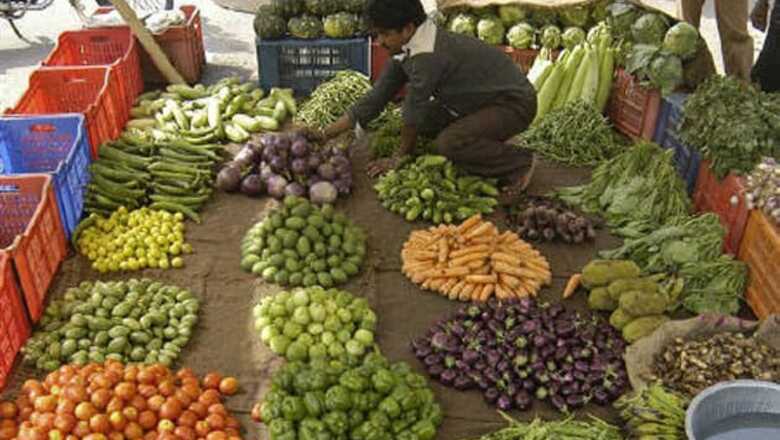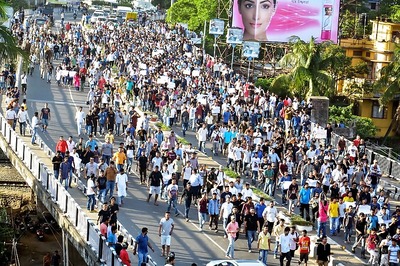
views
New Delhi: Inflation fell for the second consecutive month to a nine-month low of 8.58 per cent in October, which together with a slowdown in industrial growth may prompt RBI to halt its monetary tightening stance.
The 0.04 per cent decline in inflation from 8.62 per cent in September is significant, given that inflation stood at just 1.48 per cent in the same month last year.
As a result of the low base in September, 2009, the rate of inflation in September, 2010, appears elevated, which is known as the "base effect".
However, the decline in inflation may prove temporary, since it has become a trend nowadays for the numbers to witness frequent upward revision after being initially announced.
For the month of August, inflation has been revised to 8.82 per cent from the earlier provisional estimate of 8.51 per cent.
Commenting on the latest inflation data, Finance Minister Pranab Mukherjee today said the RBI's monetary actions have helped to bring down the rate of price rise, but supply side constraints were exerting pressure.
"From April, 2009, to September 16, 2010, we have increased CRR by one percentage point. We have increased repo rate 1.5 per cent. We have increased the reverse repo by 1.75 per cent. That has come effects. Inflationary pressure is coming from supply side also," he said.
Mukherjee noted that the international situation also impacts inflation. "International situation has its own impact," he said.
In October, food items like onions and other protein-based articles felt the maximum inflationary pressure.
Onion prices rose by 24.07 per cent in just a month as parts of Maharashtra, which is the biggest producer of the vegetable, saw large-scale crop damage due to heavy rains.
In addition, certain protein-based food items like milk remained expensive, even though prices rose by just 0.68 per cent on a monthly basis, as they were 21.65 per cent higher year-on-year.
Similarly, fruits prices rose by 4.71 per cent on a month-on-month basis, but were 15.84 per cent higher on a yearly basis.
"Food is a bigger problem at hand. Food prices are tricky," Crisil Chief Economist D K Joshi said, referring to the RBI observation that food prices are now a structural problem.
The RBI has said prices of protein-based items are rising, since they now constitute a larger chunk in the population's consumption basket.
Joshi was of the view that while the domestic factors in terms of inflation looked okay, rising global commodity prices may disturb the picture.
















Comments
0 comment